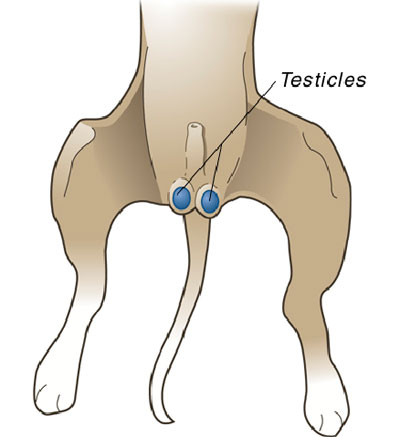
Neutering your pet has many benefits. The procedure, which prevents male animals from reproducing, can help your pet live a longer, healthier life. Neutering will not change your pet’s personality.
By neutering your male pet, you’re reducing or eliminating his risk for testicular or prostate cancer. Neutering will also reduce or eliminate undesirable and embarrassing behavior, including fighting, humping, marking, and spraying. In addition, neutering your pet will help control the overpopulation problem, keeping more animals out of shelters.
Neutering is not only recommended for dogs and cats, but also for all exotic mammals. Every species is anatomically and physiologically different in minor ways. The same surgical procedure can not be safely used in all species. Different medications and anesthetics react differently for each species. Understanding the anatomy and physiology of the different species is vital in avoiding complications with these procedures. Our staff has over 60 years of surgical experience and knowledge, specifically with exotics and these differences. Medications, anesthetic protocols and surgical procedures are catered specifically towards your specific species of pet. Whether we are talking about anything from your sugar glider to your rabbit, our staff has the unique skill set and equipment to neuter them safely.
Neutering, which involves removing the testicles, is a surgical procedure and does need to be performed with the pet under anesthesia. We follow strict protocols and continually monitor your pet’s vital signs to help ensure his safety.
Set up an appointment to learn more about this procedure and how it will benefit your pet. An initial consultation with a veterinarian will help ease any concerns or struggles with the decision of whether to neuter your pet, and we would be more then happy to discuss your concerns.
Birds and reptiles are not routinely neutered. Under very exceptional circumstances, neutering can be performed. Please contact our Toronto hospital to discuss neutering in these species further.

